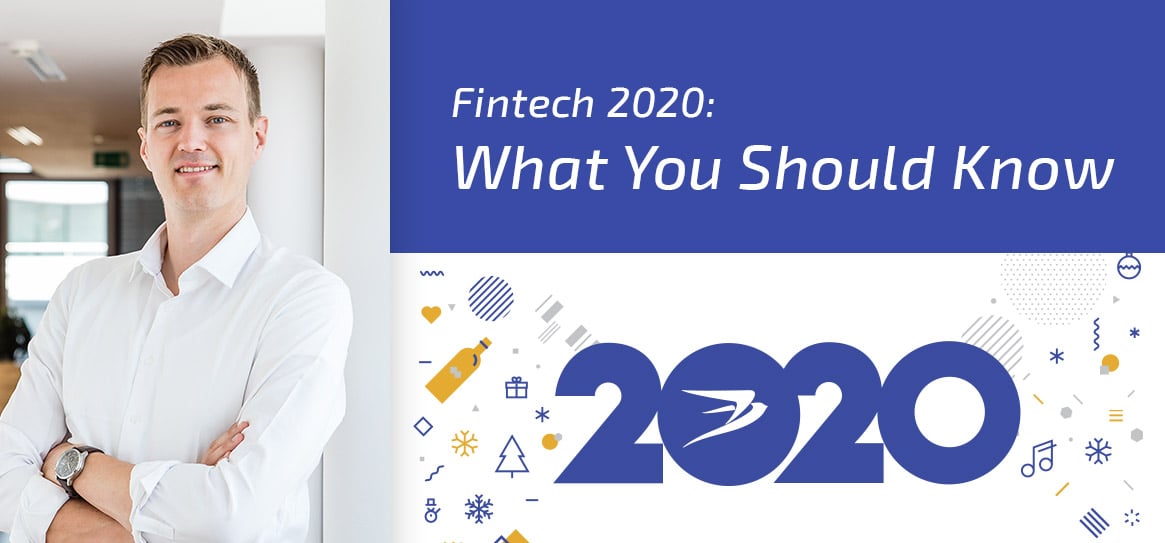
Fintech 2020 - What You Should Know!
Christian Paulus / January 14, 2020
How will the Fintech year 2020 be? What major events happened in 2019 and still have an impact today? Which new developments can you expect this year?
In his evaluation, Ralf Heim, co-founder and managing director of Fincite and Fincite Ventures, provides you with a first overview of the most critical topics in 2020.
Ralf, the Fintech market in 2019 was characterized by acquisitions, new challengers and, of course, new records. What progress, do you think, did digitalization in the financial sector make in 2019?
At the beginning of 2019, many people named AI as the topic of the year. It has become a strategical and a trendy topic for financial service providers. However, in the operational areas of the business, the problems are quite different.
For example, in the investment sector, topics such as MIFID2, digitalization and automation of consulting, asset management (including Hybrid Robo Advice), and open banking dominated the roadmaps of the financial service providers.
Among the advancements in business in 2019, banks’ internal interfaces are worth mentioning. As a software provider, we at Fincite are increasingly encountering more modern interfaces to core banking, portfolio management, or CRM systems.
Such modern improvements in interfaces shorten the implementation cycles of innovative solutions. Also, many banks have made significant progress in UX.
N26, Revolut and Co., all these B2C start-ups with impressive international growth figures, show that time is running out for traditional banks.
Since you have already given us the first names, which financial technology providers or offers really impressed you in 2019?
The Neobanks have shown that international growth in banking is possible with low customer acquisition costs. That seemed impossible for a long time but besides these banks, I would also like to mention Finanzguru.
In a year in which PSD2 accelerated the open banking movement in Germany, over 500,000 users of the Finanzguru app spoke for themselves and they made one thing clear: Customers want open banking! This kind of interest will certainly continue to grow if intelligent suggestions increase the added value of linking accounts and security accounts. In that respect, I am very excited about 2020.
Other than that, I was also impressed by a start-up outside the Fintech sector: Celonis has shown that with Process Mining it is possible to build a potential global software market leader from Germany by analyzing data, creating intelligence insights and with a simple UX.
So far, so good, and what do you think, which Fintech trends will be significant in 2020?
Topics such as Blockchain, AI, Virtual Reality, and Voice, are listed by most analysts, but I believe that even in 2020 we will still have lab-status rather than a real breakthrough in the core business of those areas.
I believe that three "buzzwords" of the last three years will make the difference in 2020 though:
1. Open Banking will be combined with valuable insights and will increase its importance for the customer and the bank (and its management). In addition, Open Banking will increasingly become a starting point for the advisory process.
2. Customer intelligence in core processes - By applying simple rules and learning procedures, banks will run initial tests to generate customer-specific recommendations or sales impulses.
While everyone in the world is already using A/B testing in online dialogues, I am looking forward to the first bank to optimize its advisory or asset management process with A/B testing. These kinds of rules and optimizations are the bases before starting any big AI projects.
3. Automation: The systems used in asset management and advisory processes are becoming more and more interconnected and thus more open for automatization.
While these buzzwords sound rather unspectacular, they will shape the future of the banks enormously. On the way to a zero-marginal-cost society, margins in the industry will continue to fall.
Without improved services and increased efficiency through automated and intelligent processes, it will be harder than before for any bank to pave the way into a successful future.
Okay, these trends primarily affect financial institutions in the first place. What innovations in the financial sector can retail customers look forward to?
Retail customers can look forward to services that are more tailored to their personal goals. At the same time, banking products are becoming more intelligent and personal too.
By 2020, for example, I expect the first banks to offer digital, individually tailored investment advice based on open banking data for end customers.
This means that financial advisors will be able to tell their customers when they could retire after looking at their bank accounts, or whether their existing portfolio has a risk/return mix that suits them, or whether their investments are too expensive.
The current "off-the-shelf investment offer" approach is no longer appropriate in a digital age.
In the investment field, access to alternative investment forms will also become easier through personal loan platforms such as Mintos, or private equity platforms such as Moonfare, or the alternative investment platform Ianua, in which we hold a stake at Fincite Ventures.
As an entrepreneur, I am looking forward to a change that allows business customers to get a decent UX at last. Until today I still do not understand why banks do not offer customers much more additional insight into their financial data.
Furthermore, I believe that Fintech services will increasingly reach business clients and institutional investors in 2020. Especially in the institutional sector, there are also many processes that involve huge sums of money, which have, however, been "spared" from digitalization.
Thank you for the interview Ralf.




